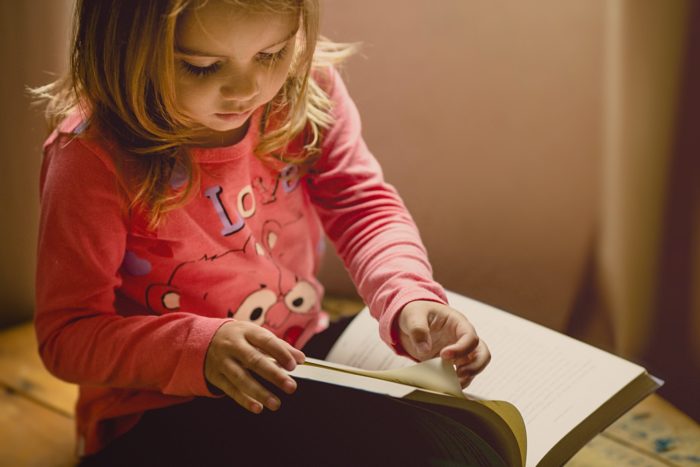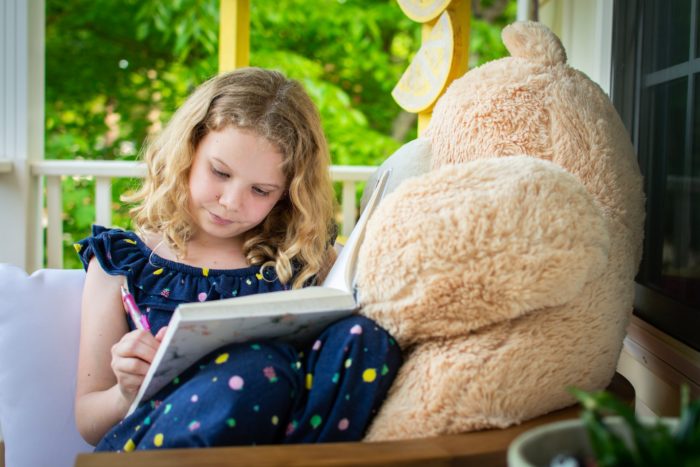Ways to Trick Your Kids into Reading
A highly enriching occupation, reading involves us in a number of processes simultaneously. While we plunge ourselves into another world (often a totally different one) and empathize with the protagonists of the story, we familiarize ourselves with cultural references, pick up new words and interesting turns of phrase, learn new things, and even lifehacks. Rarely do we close a book without gaining something new from it.

For children reading is even more important than for adults due to its great learning potential, and researchers accentuated its vital role in development in many related studies. It’s up to parents and teachers to make reading a daily occupation for their kids.
Yet it is often the case that a kid resists any such attempts because he or she doesn’t find any pleasure in reading. Then they have to be cajoled into it by dint of various strategies some of which are presented below.
See the movie right after reading the book
Many children’s classics have been filmed, and it would be easy to find one after your kid’s heart that can be read together during a week or so. After you are through, arrange for a family evening when you will watch the movie version of the book. Then you can discuss it, and the child may be strongly motivated to repeat the experience.
A cookbook may be the answer

If the child is into cooking or is interested in the procedure, pick up a cookbook or bring up a recipe on the computer screen. Reading the list of ingredients and the following instructions slowly and carefully several times over is good for developing clear comprehension. Then you get down to preparing ingredients and ask the child to re-read the list as you lay the ingredients out; then she will re-read you the instructions. Later you can ask her to write down a recipe or a menu involving the writing skill as well.
After before-sleep reading, they can be allowed to stay up later
Strike a deal with them that if they have read for a set period of time they can stay up for the same period. Many children will be delighted with the deal.
Encourage electronic reading
A digital text provides the same developmental benefits as a printed text. Our kids grow up well acquainted with perusing text on the screen, so if you see that paper books don’t mean much to them, get them a few well-chosen electronic books. Throw in a couple of educational games that require attentive reading of the rules before one can play them.
Have books lying all over the place
If you want to get your children seriously hooked on reading, make sure the very sight of books is familiar to them because they can see books around them. Designate a special place where new purchases will be placed – make them be curious whether there is something new; maybe the titles will match the season and relate to whatever activities they are engaged in. Holiday makes a good excuse to buy a book about it. Leave the book lying open in a place where they can get at it easily and begin to leaf through them. The books you want your kid to read should be where he or she can pick them, look at the pictures, if books are waterproof you can keep them in the bathroom.
Buy books with tasks

Catch the time when your kid is young enough to be interested in childhood books that involve some physical activity to be carried out: cutting out, looking at pop-up pictures, get engaged in an activity with instructions to be read before they can be completed.
Set a reading example
Children are great emulators, they will copy you and your partner in eating habits, performing chores and activities – and in reading too, especially if you evince great interest.
Make special occasions out of library visits
Librarians are people who enjoy making much of reading and making it seem magical. They organize events that will be announced on library websites; when you come in, make a point of checking for announcements at the front desk. You are in the library on business – take the child along and arrange for some fun activity for the little one, make it out to be a special event. Let all your children have library cards of their own to make them feel in control of their reading.
Set up a kind of a readers‘ club
To get it started get two people to read the same book. Arrange it with your child‘s pal, with the child’s pal’s parents, pick up the book yourself. Set a special meeting dedicated to discussion, prepare a few questions to excite interest – who likes which character best, how it could have ended if something or other had panned out. You can make reading a good social benefit, teach the child to share experiences, handle debates properly and bond more closely.
Let them have a “book buddy” to read to

Teachers often have ‘book buddies’ for younger schoolchildren to teach them to read to themselves – some stuffed animals made to look like characters from children’s shows, movies, and books. Ask them to read aloud for a buddy, explain to them how the buddy was interested and what he liked, and you will find them developing the reading habit.
Decorate a reading nook
To have your child(ren) really engrossed in reading is easier with a book-laden nook which can (and should) be turned into a cozy spot with an imaginative theme. Let the kid choose the theme, help you with setting the nook out. Find pictures of stars in a spaceship viewport, of ships at sea, of a sunset over a lagoon and strew around some objects related to the theme, maybe even bring in items of relevant clothing for a fuller atmosphere.
Reading aloud to the child, use different voices
Give each character a distinctive voice or an accent, go for funny voices. It will make reading a more artistic and receptive process and render the book more memorable.
Follow the interest

Your own choice for your kid(s) would be vastly different? Forget about it for a while. The first thing to do is to let the reading habit take a good hold on the child, it will be much easier than to persuade them into giving a try to your favorite type of fiction.
Don’t frown at comics and graphic novels
Illustrated stories are just great for learning to combine words and vision. Before the child lends himself or herself to smaller-print texts of great lengths and high literary merit, they must learn to enjoy reading and to be receptive to messages. If you succeed in growing omnivorous readers of them, they are sure to drift towards world-famous masterpieces and appreciate them. Meanwhile, they reject all but comics? Let them enjoy comics, then. Once they are set on a path, they are bound to find their own ways.
